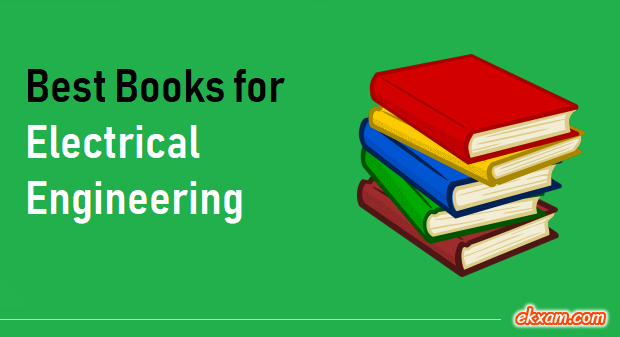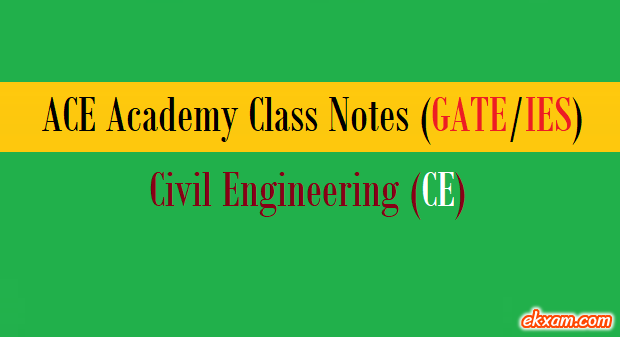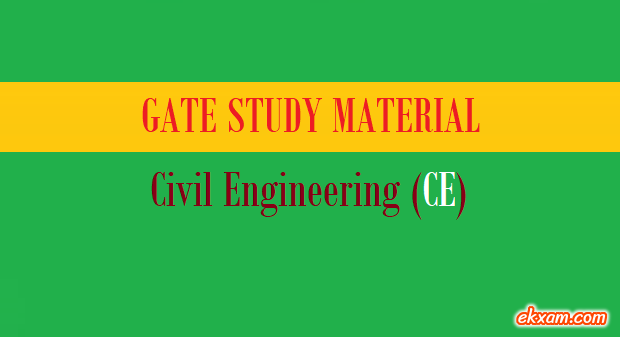Advertisements
Ratings

GATE 2024 CH Preparation – The Graduate Aptitude Test in Engineering (GATE) is a crucial examination for aspiring chemical engineers looking to excel in their academic and professional careers.
Preparing effectively for GATE Chemical Engineering requires a strategic and comprehensive approach.
This guide offers a step-by-step plan to help you achieve success in the GATE Chemical Engineering examination.
Contents
- 1. Introduction to GATE Chemical Engineering
- 2. Understanding the GATE Chemical Engineering Syllabus
- 3. Crafting a Comprehensive Study Plan
- 4. Selecting Appropriate Study Materials
- 5. Mastering Fundamental Concepts
- 6. Solving Numerical and Conceptual Problems
- 7. Reviewing Previous Years’ Question Papers
- 8. Taking Mock Tests
- 9. Effective Time Management Strategies
- 10. Implementing Revision Techniques
- 11. Staying Updated with Chemical Engineering Advancements
- 12. Managing Exam Stress
- 13. Final Weeks’ Preparation Strategy
- 14. Approaching Exam Day Confidently
- 15. Reflecting on the Exam and Planning Ahead
- Conclusion: Excelling in GATE Chemical Engineering
- Additional Resources and References
- GATE Chemical Engineering Guidance
- GATE Chemical Engineering Preparation FAQs
- GATE Total Information & Guidance
1. Introduction to GATE Chemical Engineering
GATE Chemical Engineering is a pathway to specialized education and diverse career opportunities within the field.
Effective preparation is the foundation for achieving excellence in this competitive exam.
2. Understanding the GATE Chemical Engineering Syllabus
The GATE Chemical Engineering syllabus spans various subjects, each integral to the discipline.
Below is a detailed breakdown of the syllabus categorized by subjects and their key topics:
Table 1: GATE Chemical Engineering Syllabus Breakdown
| Subject | Key Topics |
|---|---|
| Engineering Mathematics | Linear algebra, Calculus, Differential equations, Probability and statistics |
| Process Calculations | Units and dimensions, Process variables, Material balance |
| Thermodynamics | Laws of thermodynamics, Equations of state, Heat transfer |
| Fluid Mechanics | Properties of fluids, Bernoulli’s equation, Flow measurements |
| Heat Transfer | Conduction, Convection, Radiation, Heat exchangers |
| Mass Transfer | Diffusion, Mass transfer coefficients, Distillation |
| Chemical Reaction Engineering | Rate equations, Reactor design, Kinetics |
| Instrumentation and Process Control | Measurement devices, Control systems, Process dynamics |
3. Crafting a Comprehensive Study Plan
Creating a well-structured study plan is paramount for effective GATE Chemical Engineering preparation.
Develop a plan that encompasses all subjects and allocates study time based on their relative weightage:
Table 2: Sample Study Plan
| Week | Subjects/Topics | Time Allocation |
|---|---|---|
| 1-2 | Engineering Mathematics | 10 hours/week |
| 3-4 | Process Calculations | 12 hours/week |
| 5-6 | Thermodynamics | 15 hours/week |
| 7-8 | Fluid Mechanics | 10 hours/week |
| 9-10 | Heat Transfer | 12 hours/week |
| 11-12 | Mass Transfer | 8 hours/week |
| 13-14 | Chemical Reaction Engineering | 8 hours/week |
| 15-16 | Instrumentation and Process Control | 10 hours/week |
4. Selecting Appropriate Study Materials
Selecting the right study materials is crucial for comprehensive GATE Chemical Engineering preparation.
Consider a mix of textbooks, reference materials, online resources, and mock tests:
Table 3: Recommended Study Resources
| Subject | Books | Online Resources |
|---|---|---|
| Engineering Mathematics | “Advanced Engineering Mathematics” by Erwin Kreyszig | Khan Academy, Coursera Mathematics courses |
| Process Calculations | “Elementary Principles of Chemical Processes” by Felder and Rousseau | NPTEL’s Chemical Engineering courses |
| Thermodynamics | “Introduction to Chemical Engineering Thermodynamics” by Smith, Van Ness, and Abbott | Coursera’s Thermodynamics courses |
| Fluid Mechanics | “Introduction to Fluid Mechanics” by Fox and McDonald | NPTEL’s Fluid Mechanics courses |
| Heat Transfer | “Heat and Mass Transfer: Fundamentals & Applications” by Cengel and Ghajar | Coursera’s Heat Transfer courses |
| Mass Transfer | “Mass Transfer Operations” by Treybal | NPTEL’s Mass Transfer courses |
| Chemical Reaction Engineering | “Chemical Reaction Engineering” by Octave Levenspiel | Coursera’s Chemical Engineering courses |
| Instrumentation and Process Control | “Process Control: Modeling, Design, and Simulation” by B. Wayne Bequette | NPTEL’s Process Control courses |
5. Mastering Fundamental Concepts
Building a solid foundation in core concepts is crucial for excelling in GATE Chemical Engineering.
Focus on fundamental principles within each subject:
Table 4: Mastering Core Concepts
| Subject | Key Concepts |
|---|---|
| Process Calculations | Material and energy balances, Stoichiometry |
| Thermodynamics | First and second laws, Enthalpy, Entropy |
| Fluid Mechanics | Fluid properties, Fluid dynamics, Bernoulli’s equation |
| Heat Transfer | Modes of heat transfer, Thermal resistance |
| Mass Transfer | Fick’s law, Diffusion coefficients, Mass transfer coefficients |
| Chemical Reaction Engineering | Rate equations, Reaction mechanisms, Reactor types |
| Instrumentation and Process Control | Sensors, Controllers, Process dynamics |
6. Solving Numerical and Conceptual Problems
Balancing numerical problem-solving skills with conceptual understanding is essential. Practice problems related to:
- Process Calculations: Solving material and energy balance equations, stoichiometry calculations.
- Thermodynamics: Applying laws of thermodynamics to solve problems involving heat and work.
7. Reviewing Previous Years’ Question Papers
Solving previous years’ question papers offers insights into question patterns, difficulty levels, and exam trends:
Table 5: Benefits of Solving Previous Years’ Papers
| Benefit | Description |
|---|---|
| Understand Question Types | Identify common question patterns and formats |
| Time Management | Practice completing the paper within time |
| Exam Pattern Familiarity | Get comfortable with GATE question patterns |
| Self-Assessment | Evaluate your preparation level and progress |
8. Taking Mock Tests
Taking mock tests under simulated exam conditions is crucial for building confidence and refining time management:
Table 6: Benefits of Taking Mock Tests
| Benefit | Description |
|---|---|
| Exam Simulation | Replicate the actual exam environment |
| Time Management Improvement | Enhance time allocation skills |
| Confidence Building | Boost your confidence before the real exam |
| Identifying Weak Areas | Pinpoint areas requiring further attention |
9. Effective Time Management Strategies
Effective time management during the exam is paramount. Develop a strategy to allocate time to different sections:
Table 7: Time Management Strategy
| Section | Recommended Time Allocation |
|---|---|
| Engineering Mathematics | 15 minutes |
| General Aptitude | 15 minutes |
| Subject-specific Sections | 75 minutes each |
10. Implementing Revision Techniques
Regular revision is essential for retaining information. Utilize structured techniques to reinforce your understanding:
- Revision Schedule: Allocate time for revisiting key topics regularly.
- Concise Notes: Create summarized notes, flowcharts, and diagrams for quick review.
11. Staying Updated with Chemical Engineering Advancements
Staying current with advancements is crucial:
- Follow Research Publications: Subscribe to chemical engineering journals and research articles.
- Engage in Online Communities: Participate in chemical engineering forums and discussions.
12. Managing Exam Stress
Effective stress management is vital for staying focused during preparation:
- Relaxation Techniques: Engage in mindfulness, meditation, and deep breathing.
- Balanced Routine: Maintain study routine while incorporating relaxation, exercise, and mindfulness.
13. Final Weeks’ Preparation Strategy
As the exam approaches, intensify revision of key topics:
- Focused Revision: Dedicate more time to challenging subjects.
- Additional Mock Tests: Simulate exam conditions with more practice tests.
14. Approaching Exam Day Confidently
On the exam day, stay composed:
- Read Instructions Carefully: Understand question patterns and instructions.
- Effective Time Allocation: Allocate time wisely to different sections.
15. Reflecting on the Exam and Planning Ahead
Evaluate performance and plan the next steps:
- Performance Analysis: Identify strengths and areas for improvement.
- Future Planning: Determine future areas of study and exploration.
Conclusion: Excelling in GATE Chemical Engineering
Preparing for GATE Chemical Engineering requires dedication, planning, and a structured approach.
By following this comprehensive guide, aspiring candidates can enhance their chances of excelling in the examination and making significant contributions to the field of chemical engineering.
Additional Resources and References
For additional resources and references, explore the recommended textbooks, online courses, and practice papers mentioned in this guide.
These resources will further enhance your understanding and preparation for the GATE Chemical Engineering exam.
GATE Chemical Engineering Guidance
- How to Prepare for GATE Chemical Engineering: A Comprehensive Guide
- GATE CH Syllabus 2025: Chemical Engineering
- GATE CH Previous Year Solved Papers – (2023-2007)
GATE Chemical Engineering Preparation FAQs
What is GATE Chemical Engineering (CH)?
GATE CH is an examination conducted by the Indian Institute of Technology (IIT) for admission into postgraduate programs in Chemical Engineering and related fields.
It evaluates candidates' knowledge and understanding of chemical engineering concepts and serves as a gateway to higher education and career opportunities in this field.
What are the important subjects to focus on for GATE Chemical Engineering preparation?
Key subjects to focus on include chemical engineering thermodynamics, mass transfer, heat transfer, fluid mechanics, chemical reaction engineering, process control, and plant design.
Refer to the official GATE syllabus for Chemical Engineering to ensure comprehensive coverage.
How should I prepare for the GATE CH exam?
Effective preparation involves creating a study plan based on the GATE syllabus. Utilize standard textbooks, reference materials, and online resources for each subject.
Practice solving previous years' question papers and mock tests to become familiar with the exam pattern and improve your problem-solving skills.
Additionally, focus on concepts, numerical problem-solving, and time management.
Are there any recommended books or resources for GATE Chemical Engineering preparation?
Yes, some recommended books and resources include:
- 'Introduction to Chemical Engineering Thermodynamics' by J.M. Smith, H.C. Van Ness, and M.M. Abbott
- 'Mass Transfer Operations' by Robert E. Treybal
- 'Heat and Mass Transfer: Fundamentals and Applications' by Yunus A. Çengel and Afshin J. Ghajar
- 'Chemical Reaction Engineering' by Octave Levenspiel
- Online courses and lecture videos from reputable institutions and platforms like NPTEL and Coursera.
What is the exam pattern for GATE Chemical Engineering, and how should I approach it?
GATE CH typically consists of multiple-choice questions, multiple-select questions, and numerical answer type questions.
Questions cover various aspects of chemical engineering, including theory and practical applications.
Start by answering questions you are confident about and manage your time efficiently. For numerical answer type questions, ensure precision in your answers.
Speed and accuracy, along with a strong understanding of fundamental chemical engineering concepts, are essential for success in the exam.
Recent Posts
- AAI Through GATE 2024 – JE (Junior Executive)
- M Tech and MS Programs Through GATE and GRE: Navigating Postgraduate Options
- Job Opportunities After GATE 2024 in India: What You Didn’t Know!
- BSPHCL Through GATE 2024 – 40 AEE
Related Tags
How to prepare for gate chemical engineering pdf 2024, how to prepare for gate chemical engineering without coaching 2024, How to prepare for gate chemical engineering quora 2024, gate chemical engineering syllabus 2024, gate chemical engineering question paper 2024, best books for gate chemical engineering 2024, gate chemical engineering coaching 2024, gate chemical engineering study material 2024
| GATE (Reasoning & Aptitude & Maths) Books |
| GATE Guide Books |
GATE Total Information & Guidance
Click below given links to get further information.







